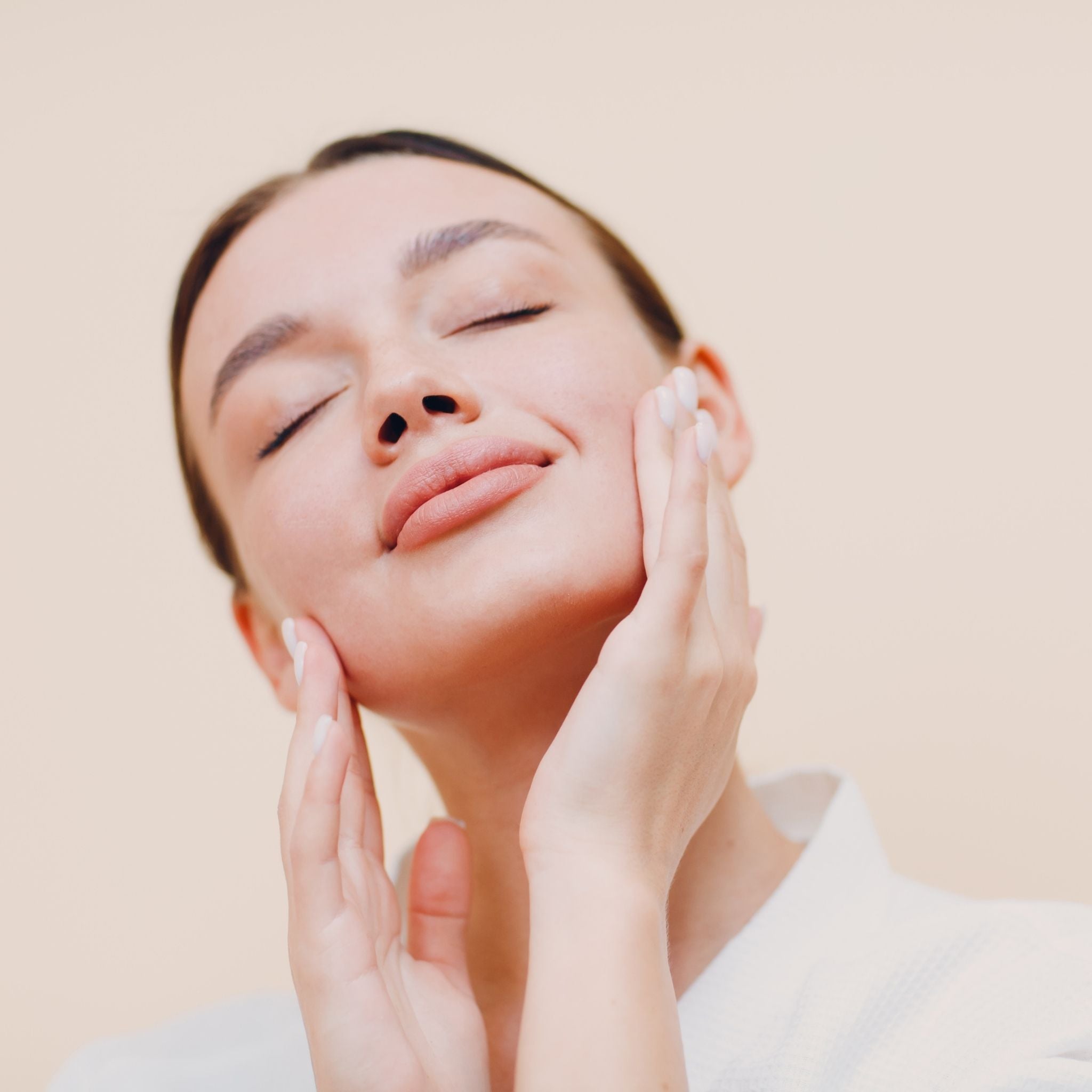How to care for reactive skin and rosacea: a complete guide
Although reactive skin and rosacea are not the same, they can present similarly, and a person can suffer from both conditions simultaneously. Discover the best tips and specific products to combat it.
Reactive skin and rosacea are two common conditions that can affect your quality of life. In this article, you'll discover what they are, why they occur, who they affect, and the best calming niacinamide serum , perfect for caring for sensitive skin and improving its well-being.
In this article, we'll explore in detail what reactive skin and rosacea are , who they affect most, the underlying causes , and the best cosmetic product for these skin types.

👉 Are you interested in natural skincare? You'll love this.
What is reactive skin?
Reactive skin is a condition in which the skin overreacts to stimuli that normally don't affect healthy skin. Changes in temperature, wind, sun, or chemicals in cosmetics and detergents can cause redness, burning, and itching.
This sensitivity can affect your daily well-being, but with proper care, it can be improved.

Causes of reactive skin
-
Genetic factors: Some people are more predisposed to skin sensitivity.
-
Weakened skin barrier: When the skin loses its natural protection, irritants penetrate more easily.
-
Habits and lifestyle: Stress, unbalanced diet, and lack of sleep can worsen sensitivity.

What is rosacea?
Rosacea is a chronic inflammatory disease that primarily affects the face, causing persistent redness, visible blood vessels, and sometimes acne-like bumps.
Although it shares symptoms with reactive skin, rosacea is a more inflammatory and long-lasting condition.
Reactive skin and rosacea are conditions that require special and delicate care. Natural cosmetics, with ingredients like niacinamide, offer effective solutions to relieve symptoms and improve overall skin health.

Causes of rosacea
-
Genetic factors: Rosacea can be inherited.
-
Vascular dysfunction: Changes in the blood vessels cause redness.
-
Chronic inflammation: Constant inflammatory response in the skin.
-
Triggers: Spicy foods, alcohol, stress, and temperature changes aggravate rosacea.

Who is more prone to reactive skin and rosacea?
-
Gender: Rosacea is more common in women, although men can experience more severe forms.
-
Skin type: Light and thin skin are at higher risk.
-
Age: Rosacea usually appears in middle age; reactive skin can affect anyone at any age.
-
Family history: A history of sensitivity or rosacea increases the likelihood.
Reactive skin and rosacea are two distinct conditions , although they can present similar symptoms and, in some cases, coexist . Let's clarify the differences and the relationship between the two:
Differences between reactive skin and rosacea

Although they can coexist, rosacea is a chronic condition, while reactive skin is usually a temporary response to irritants.
Care for reactive skin and rosacea
Since both conditions can coexist, it is important to adopt a skincare routine that addresses both needs:
- Choose gentle products: Cleansers, serums, and creams without irritating ingredients, formulated for sensitive skin.
- Contains niacinamide: This natural active ingredient reduces inflammation and strengthens the skin barrier.
- Daily sun protection: Essential to prevent worsening symptoms.
-
Avoid triggers: Identify and limit exposure to triggers, such as spicy foods, alcohol, or stress.

Niacinamide: a great ally for reactive skin and rosacea
Niacinamide (vitamin B3) is a natural active ingredient with multiple benefits:
-
Reduces inflammation and redness.
-
Strengthens the skin's protective barrier.
-
Regulates sebum production.
-
Improves skin texture and uniformity.
Using products with niacinamide is key to improving the health and appearance of sensitive skin and rosacea.
Niacinamide can be a key component in a skincare routine for both conditions, offering relief and improving overall skin health.
OhMyKoko serum contains the ideal dose of niacinamide and botanical actives that help soothe and transform reactive and rosacea-prone skin.
📰 Did you know that water can make sensitive skin worse?
Find out how to use it well in your daily routine 👉 Read the article
---
Why choose OhMyKoko?
At OhMyKoko , we not only offer natural and vegan cosmetics, but we're also the first skin activist brand . Our products are formulated with high-quality, natural ingredients, free of toxic chemicals , designed to care for your skin and respect the environment.
👉 If you haven't already, download our free guide and start your routine with meaning. 























Leave a comment